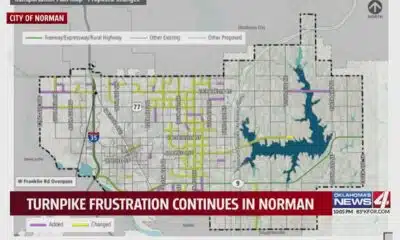Mississippi News
On average, 25 mentally ill Mississippians wait in jail for hospital bed daily
An average of 25 mentally ill Mississippians wait in jail for hospital bed each day, report finds
The wife of a man who sometimes experiences crises related to his bipolar disorder feels he has been “subjected to treatment that should not happen in a civilized society.”
The unnamed woman, who moved to Mississippi with her husband, told the court-appointed special monitor of the state’s mental health services that her husband was held in jail without medication and continued to decline as he waited for a bed at a state hospital. Another time, he was taken to a crisis stabilization unit (CSU), which can provide intensive treatment and serve as an alternative to hospitalization and to waiting in jails.
But after the staff called police, he wound up back in jail.
A year later, she took him to the CSU again, where a staff member said, “You can’t come in here because of how you behaved last time.” He was taken to jail again until his wife was able to get him a bed at a private hospital. He then had to wait for a state hospital bed to become available.
Monitor Michael Hogan included her story in his second report to illustrate how Mississippians can be subjectively denied admission to their regional crisis stabilization units, increasing the odds that they spend time in jail while waiting for a bed at a state mental hospital, without ever being charged with a crime.
Throughout his report, Hogan emphasized the issue of sick people waiting in jail for treatment.
“On average during FY ’22, according to DMH, on any given day 25 individuals waited in a jail cell for a hospital bed, a clearly unacceptable pattern,” Hogan wrote.
The monitor recommended the Department of Mental Health consider adopting “a structured, validated instrument” to help clinicians make placement decisions and bring uniformity to the admission process for CSUs.
In 2016, the Department of Justice sued the state over its mental health system. U.S. District Court Judge Carlton W. Reeves sided with the federal government in 2019, finding that the state had violated the Americans with Disabilities Act by essentially segregating people with mental illness in hospitals far from their homes and families. Last year, Reeves appointed Hogan, a former New York State Commissioner on Mental Health with 40 years of mental health experience, to create twice-yearly reports evaluating the state’s compliance with the settlement agreement.
Hospital admissions have declined statewide since 2019. That could be a sign of progress: Reducing the number and length of hospital stays was a key requirement of the remedial order.
But the monitor also noted that some people were not admitted due to staffing shortages at the state hospitals. Staffing shortages also limited capacity at the crisis stabilization units (CSUs).
“In the view of the Monitor, gross numbers of admissions do not reveal much about whether these admissions could have been avoided,” he wrote. “Indeed, where admissions to Hospitals or CSUs may have been appropriate but beds were not available, the failure to admit is a problem.”
Hogan determined the state was in “partial compliance” with that piece of the order.
In an email to Mississippi Today, Department of Mental Health communications director Adam Moore said staffing challenges had increased wait lists by decreasing bed availability at two of the four state hospitals, as well as CSUs.
“DMH agrees that someone having to wait in jail to receive acute psychiatric treatment at a state hospital bed or a CSU is undesirable,” he wrote. “We are implementing strategies to increase staffing to reopen the remaining 30 acute psychiatric beds at East Mississippi State Hospital and 20 beds at Mississippi State Hospital and are encouraging the CMHCs to do the same in regard to the CSUs.”
Hogan’s report described significant differences across the state’s 13 regions, each of which is served by a different community mental health center. For example, the number of involuntary commitments – when a person with mental illness is forced into treatment by a local chancery judge after someone attests the person could harm themselves or another person – ranges widely, with some counties committing around one per 300 residents and others only one per 1,500.
“Since levels of serious mental illness do not vary this widely between counties, this variance reflect (sic) historical and local variability in patterns of care,” Hogan wrote.
Care coordination – identifying people with serious mental illness, offering appropriate treatment, and working to ensure they actually receive that treatment – also varies dramatically across regions.
Hogan’s team asked community mental health staff what happened if someone missed an appointment. Responses ranged from “Three strikes, you’re out” to “We go look for them, and if they aren’t home, we keep looking.”
Care coordination is a key part of the remedial order, and Hogan said that because of the variations across regions he could not determine whether the state was in compliance. He recommended the Department of Mental Health establish and enforce standards for care coordination.
In part, the differences across the regions are rooted in the history of the state’s mental health system. Since the community mental health centers were created 40 years ago, they operated with little oversight from the Department of Mental Health, which focused on running the state hospitals. Some regions are very poor and rural, while Hinds County, Region 9, is entirely urban.
“Differences in services organization and management also reflect the substantial autonomy in CMHC operations and may not in all cases reflect best practices in organizing care,” Hogan wrote.
Hogan’s first report, issued in March, described Mississippians waiting days and even weeks in jail for a bed at a state hospital. He also found that some people admitted to state hospitals did not have a serious mental illness – meaning the hospital wasn’t the right place for them and they were occupying a bed that could have been used by someone else.
In his second report, he surveyed North Mississippi State Hospital and community mental health centers in the northern part of the state and did not find patients admitted without a serious mental illness diagnosis.
If there were fewer denials at the crisis stabilization units, fewer Mississippians with mental illness would wait in jail to receive health care.
Of 1,275 CSU denials in the first half of Fiscal Year 2022, Hogan reported, about 30% occurred because no bed was available, in many cases because of staffing shortages. A fifth occurred because the CSU determined the person was too violent; other denials were based on the person’s substance abuse or medical issue.
The Department of Mental Health has increased funding to the community mental health centers for security in an effort to reduce the number of denials.
Hogan wrote that upcoming monitoring reports will focus on reviewing state data about utilization of key community services like mobile crisis teams. Previously, the state said it had funded those programs, but data to see how they work was not yet available.
Moore said the Department’s latest data indicates intensive community services have helped reduce rates of readmission to state hospitals. Of 2,424 Mississippians who received the services in Fiscal Year 2022, only 149 were readmitted to a state hospital.
More than a decade after the Department of Justice first determined Mississippi was unnecessarily institutionalizing people with mental illness, the lawsuit still isn’t over. The state appealed Reeves’ ruling to the U.S. 5th Circuit Court of Appeals and oral arguments will take place on Oct. 5 in New Orleans.
Read the monitoring report here:
This article first appeared on Mississippi Today and is republished here under a Creative Commons license.
Mississippi News
Death toll from catastrophic Texas flooding passes 100
SUMMARY: Catastrophic flooding in Texas over the July Fourth weekend killed at least 104 people, including 28 children, mostly near Camp Mystic, a century-old girls’ summer camp in Kerr County. Search-and-rescue teams continue to search swollen rivers for dozens still missing; officials expect the death toll to rise as more rain threatens the saturated area. Many victims were swept from cabins by flash floods early Friday, some clinging to trees. Authorities will investigate warnings and evacuation delays, noting poor cellphone service hindered alerts. Despite warnings issued before the flood, some residents didn’t receive them. President Trump plans to visit the state.
The post Death toll from catastrophic Texas flooding passes 100 appeared first on www.wjtv.com
Mississippi News
LIVE: Officials give updates on Texas floods
SUMMARY: Crews in central Texas continue searching for victims after catastrophic July Fourth weekend flooding killed over 80 people, including 27 campers and counselors at Camp Mystic along the Guadalupe River. The floods, some of the worst in decades, struck overnight, sweeping away tents and cabins. With more rain forecast, authorities warn the death toll may rise as many remain missing. Survivors described clinging to trees or fleeing to attics. Officials face scrutiny over flood warnings and emergency response. President Trump declared Kerr County a disaster area, pledging support while criticizing FEMA’s performance.
The post LIVE: Officials give updates on Texas floods appeared first on www.wjtv.com
Mississippi News
Texas floods: At least 51 dead, 27 girls still missing as search efforts continue
SUMMARY: A devastating flash flood struck a summer camp along Texas’ Guadalupe River, killing at least 51 people, including 15 children, with many missing, mainly from Camp Mystic. The floodwaters surged 26 feet in 45 minutes early Friday, washing away homes and vehicles. Rescue teams face challenging terrain, using helicopters, boats, and drones to search for survivors amid debris and broken trees. Authorities are scrutinized for potential warning and preparation failures. Gov. Greg Abbott declared a day of prayer, while rescue and recovery efforts continue amid fears of additional flooding. The Hill Country’s flood-prone terrain and unexpected downpour overwhelmed campers and residents, prompting widespread grief and appeals for support.
The post Texas floods: At least 51 dead, 27 girls still missing as search efforts continue appeared first on www.wjtv.com
-
News from the South - Louisiana News Feed7 days ago
Attorneys who run public defender offices replaced amid contract turmoil
-
News from the South - Alabama News Feed7 days ago
Gov. Kay Ivey expected to name Alabama parole board pick in coming days
-
News from the South - Kentucky News Feed7 days ago
In small-town Kentucky, finding ‘all the more reason to resist’
-
News from the South - Arkansas News Feed4 days ago
Real-life Uncle Sam's descendants live in Arkansas
-
News from the South - Kentucky News Feed6 days ago
Man arrested after alleged strangulation of adult and juvenile
-
Mississippi News Video6 days ago
MHP holiday travel enforcement period begins
-
News from the South - Missouri News Feed6 days ago
Bank robbery suspect arrested in suburban home neighbors say they warned about
-
News from the South - Oklahoma News Feed6 days ago
Turnpike frustration continues in Norman





















































